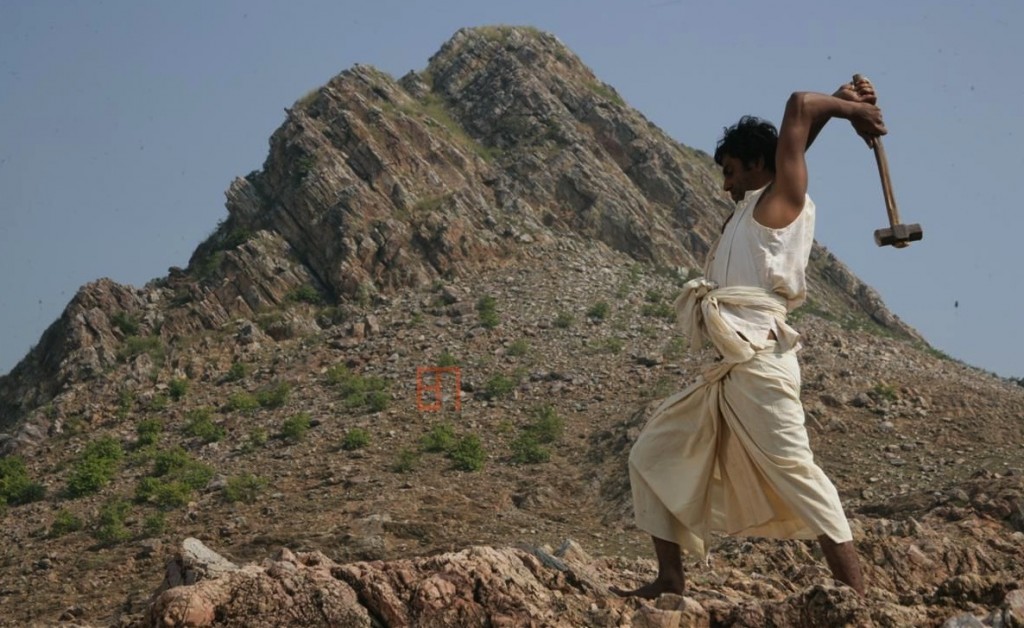In Gehlour village in Bihar, Dashrath Manjhi (Nawazuddin Siddiqui), a poor laborer, chips away at a mountain with a hammer, chisel and crowbar for 22 years from 1960-1982 and against great odds, builds a road through it so others from his village can reach the nearest medical centre in time for treatment unlike his wife who died because he couldn’t get her there in time.
There is no doubt that the true life story of Dashrath Manjhi is a remarkable story of a remarkable man. A man whose obsession kept him going for over two decades even as others declared him mad. But merely having a strong story foundation doesn’t necessarily make for a riveting film as the base material needs to be reworked in a cinematic language for it to succeed. Here is where Manjhi – The Mountain Man fails despite its sincere intentions as director Ketan Mehta is unable to put the material together in a convincing filmic manner and this has the film falling well short of the mountain peak it aimed to conquer.
No doubt, it was a difficult task at hand with a large chunk of the film being little more than a man chipping away at the mountain but even then, some of the treatment is disappointing to say the least. The narrative structure of jumping ahead every few years as Manjhi works away at the mountain and being connected with flashbacks looks clumsy and in an effort to add in fiction to bring in some drama and make the story ‘viewer-friendly’, the film gets into horribly stereotypical territory that is totally at odds with the more realistic bits. In particular, the love track of Manjhi and Phaguniya (Radhika Apte) is the weakest element of the film and filmi storytelling at its worst. This takes away much from the viewer into believing what he is seeing is based on a true story especially as Manjhi’s sole motivation for attacking the mountain is Phaguniya’s death. Yes, there is the odd smiling-inducing moment and some light humor in this track but it does little to help the film. That said, the film still does hit home a few hard truths looking at the caste system and the horrific treatment of Dalits as we chillingly realize that nothing has really changed in India all these years.
If there’s one aspect of the film that is largely faultless, it is Nawazuddin Siddiqui’s central act. He rises way above the script and creates a flesh-and-blood obsessive, stubborn character you still root for, even though you know the events and the final result of his efforts that occurred in real life. He gives the film much of its strength and shows yet again why he is one of the finest actors in India today. If only the script had helped him more and given him more to work with, like exploring his relationship with the mountain with some more degree of depth.
Radhika Apte’s character has spunk but she is badly miscast and the stereotypical handling of her role defeats her even more. Tigmanshu Dhulia as the high caste sadistic village headman and Pankaj Triparthi as his son are fine enough even if they are somewhere typical villains.
The technicalities aren’t much to write about either. Sandesh Shandilya’s music doesn’t work while the VFX work is tacky and disappointing. All in all, Manjhi – The Mountain Man fails to deliver and is one of Ketan Mehta’s weaker films. As for the real Dashrath Manjhi, who died in 2007, a better homage to him would be to watch the documentary The Man Who Moved The Mountain (2011) instead.
Hindi, Drama, Color


